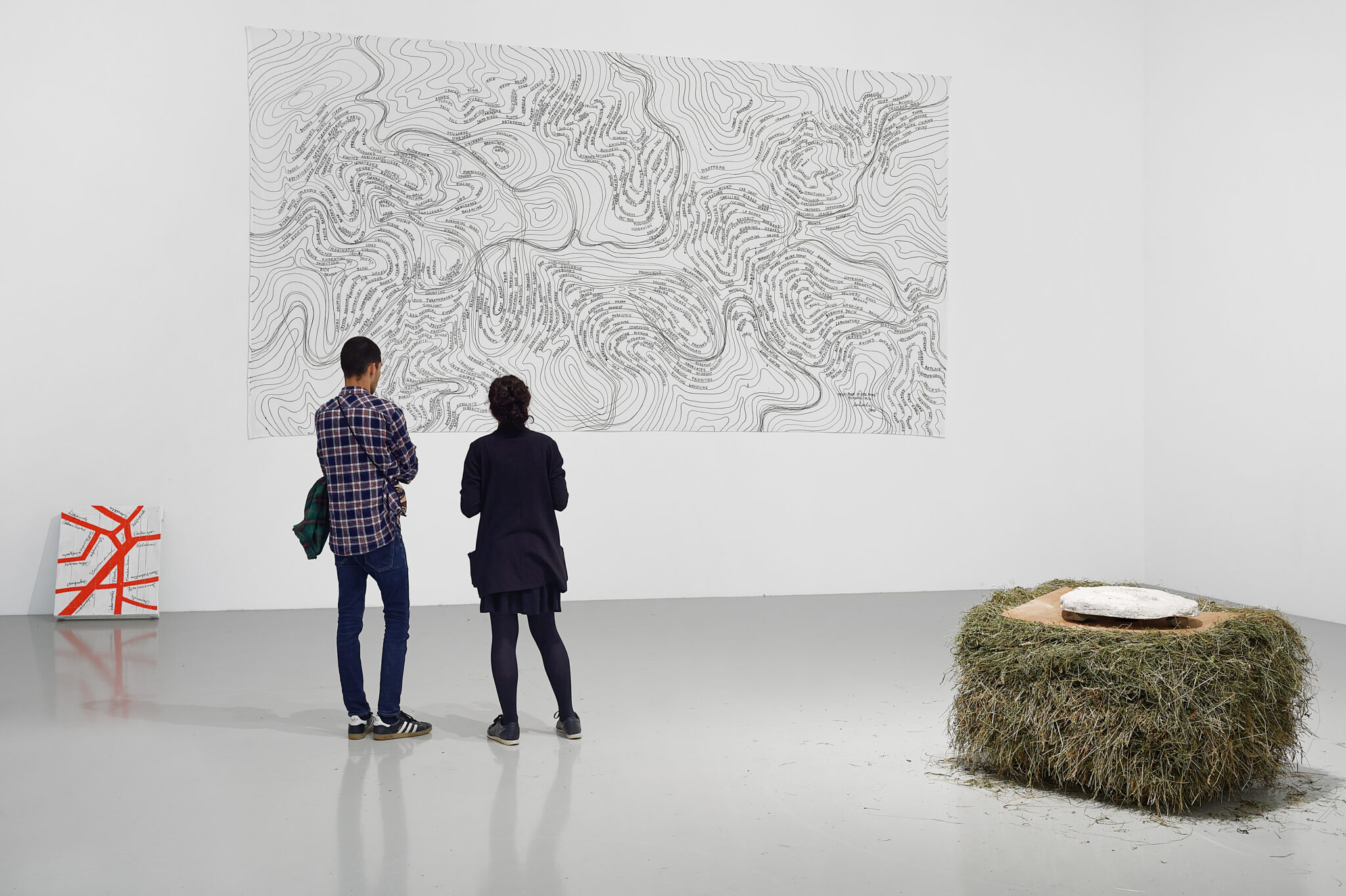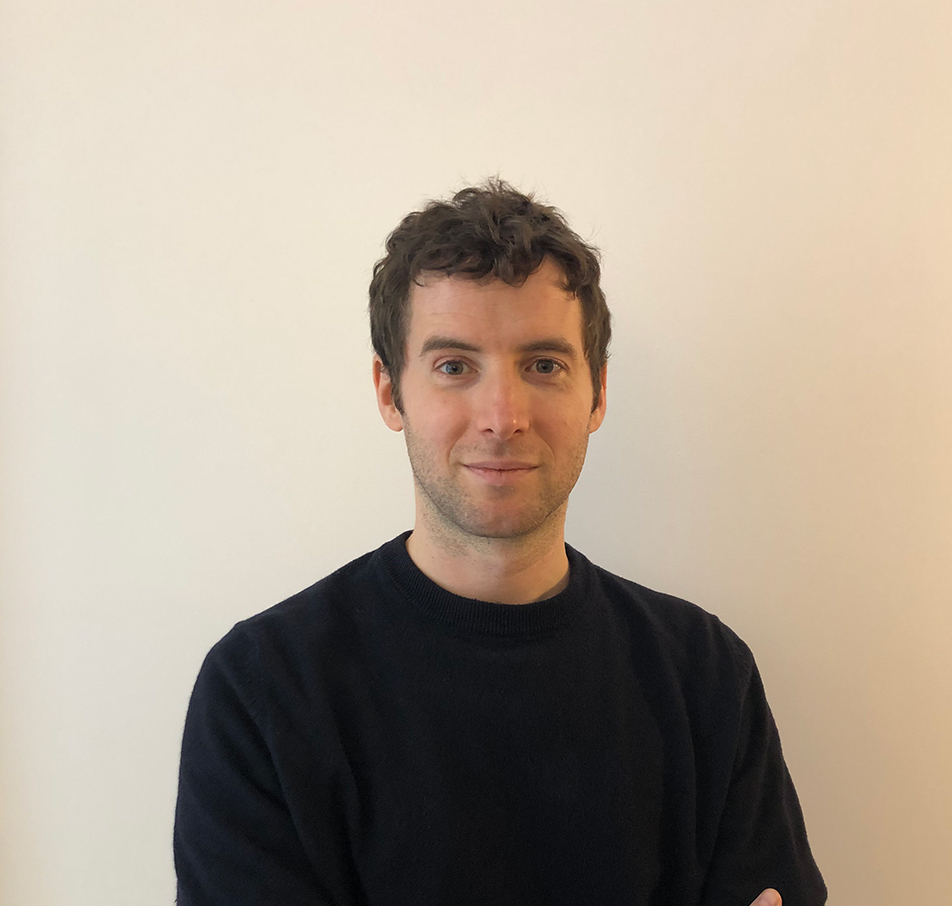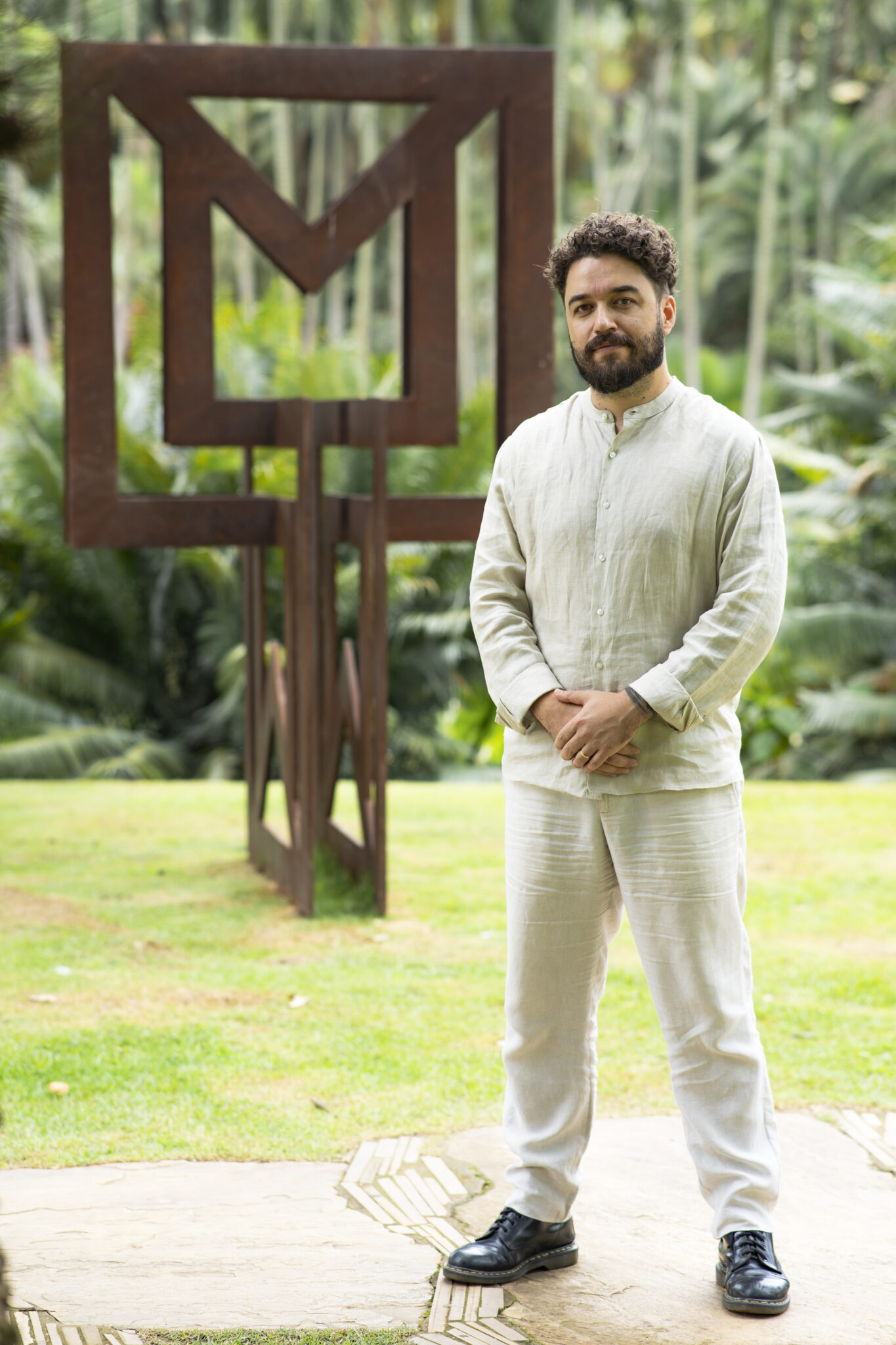
Open Call
The Frac collections bring together more than 32,000 works by French and foreign artists, acquired over more than 40 years as part of a forward-looking approach. The French regions are thus endowed with an exceptional contemporary heritage and numerous masterpieces that the Frac endeavor to promote by organizing exhibitions and all forms of events that encourage encounters between the works and all audiences in all territories.
The Platform network, in collaboration with the French Ministry of Culture and ADAGP. Two research grants have just been awarded to a French researcher and a Brazilian curator, inviting them to take a singular look at the Frac collections.
Research grant for Frac collections (November 2024-June 2025)
A call for research projects launched by Platform with the support of the French Ministry of Culture and ADAGP aimed to offer new perspectives on the Frac collections and on the history of art over the last 50 years through the study of these singular collections.
Widely distributed thanks to the mobilization of our partners, whom we would like to thank, 65 applications of the highest quality were received. Meeting on November 12 at the INHA, the jury comprised Simon Andre-Deconchat (deputy director of the Centre National des Arts Plastiques CNAP), Marie Tchernia-Blanchard (director of the Archives de la critique d’art, lecturer in contemporary art history, Rennes University), Christian Jaccard (artist member of the ADAGP), Lauriane Gricourt (Director of Les Abattoirs, Musée-Frac Occitanie Toulouse), Fabien Danesi (Director of FRAC CORSICA), Isabelle Delamont (Head of the Creation and Distribution Support Department, DGCA, Ministry of Culture) and Julie Binet (General Secretary of Platform) awarded the research grant to Nicolas Heimendinger.
The jury’s report is available below.
The research projects proposed by the other candidates will be made available to the Frac teams, unless otherwise specified, with a view to encouraging collaboration and other opportunities to bring these proposals to fruition.

Nicolas Heimendinger
2024 winner of the Frac collections research grant.
Nicolas Heimendinger holds a PhD in art history and is a member of the “Arts des images et art contemporain” laboratory at the Université Paris 8 Vincennes-Saint-Denis, specializing in institutions and public policy in contemporary art. His thesis, awarded the Prix Valois by the French Ministry of Culture in 2023, will soon be published by CNRS Éditions.
His project proposes to retrace the history of the Fonds régionaux d’art contemporain through the men and women who, over the past four decades, have helped to create and enrich these 22 highly varied collections, now comprising over 35,000 works. The aim of this survey is to demystify the acquisition work of the FRAC, and to gain a better understanding of the motivations, questioning and exchanges that accompany the construction – sometimes complex, always exciting – of a public collection dedicated to the art of the present day. The project will be based in particular on a questionnaire survey of FRAC directors, to study the evolution of these functions since 1982. It will also be accompanied by a series of interviews with several of these directors, which will form the core of an oral archive on the history of these institutions, which play a crucial role in the support and dissemination of contemporary art in France.
Residency of a Brazilian curator in the Frac in 2025 for an exhibition in Belo-Horizonte, Brazil in 2026.
Launched in collaboration with the Institut français and the French Ministry of Culture, this invitation offers a foreign curator the chance to come to France and delve into the collections of the Frac, in order to design an exhibition to be presented in his or her country of origin.
The jury, comprising Claire Staebler (Director of Frac des Pays de la Loire), Irene Aristizàbal (Director of Frac Poitou-Charentes), Fanny Gonella (Director of 49 Nord 6 Est – Frac Lorraine) and Julie Binet (General Secretary of Platform), met on November 12, 2024 and selected Lucas Menezes as the winner of this curatorial grant.

Lucas Menezes
Winner of the curatorial grant for the Frac collections.
Lucas Menezes, born in Brazil in 1986, holds a master’s degree in social history from the Universidade Federal Fluminense in Brazil and a doctorate in art history from the Université Paris 1 Panthéon-Sorbonne. In Brazil, he is currently curator of the Inhotim Institute (one of the world’s largest contemporary art spaces) and research supervisor for the 2023-2024 season of the Bolsa Pampulha residency program, organized by the Pampulha Art Museum. At Inhotim, among other initiatives, he is co-curator of the Esconjuro project, a two-year artistic occupation by Brazilian artist Paulo Nazareth, as well as the Homo sapiens sapiens exhibition by Swiss artist Pipilotti Rist.
Lucas Menezes proposes a project entitled “Croisement de Directions Opposées / Cruzamento de Direções Opostas”, which highlights the work of women artists whose production is based on reproducible techniques such as engraving, photography, audiovisual works or performance. These works, often designed to occupy public spaces, transcend the limits of the traditional “white cube”. Echoing the Frac’s mission to reach out to the public, the project proposes several exhibitions and installations of works in public places in the city of Belo-Horizonte. The exhibitions will cross-reference works selected from the Frac collections with those from the Pampulha Art Museum (MAP) collection since the 1970s, with a particular focus on 21st-century contemporary production. In addition, the richness of the FRAC collections offers the opportunity for these Brazilian creations to coexist with those of French artists and those of other nationalities, reinforcing artistic dialogues. The use of reproducible or “repeatable” techniques is also in line with MAP’s historical vocation. This approach highlights the circulation and proliferation of works, fostering new modes of exhibition and cultural exchange, while expanding the places and audiences they can reach.